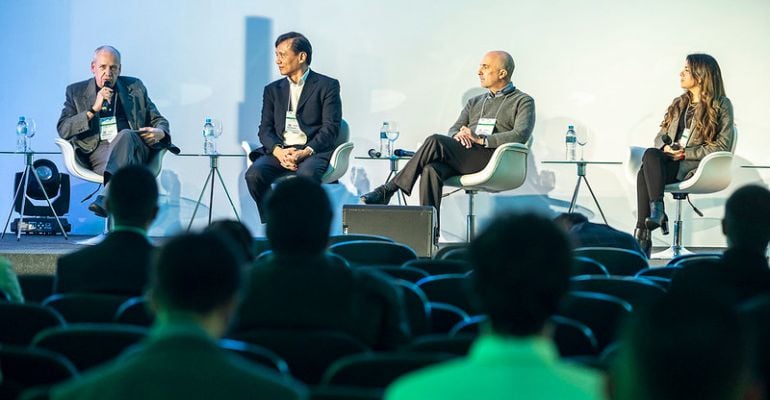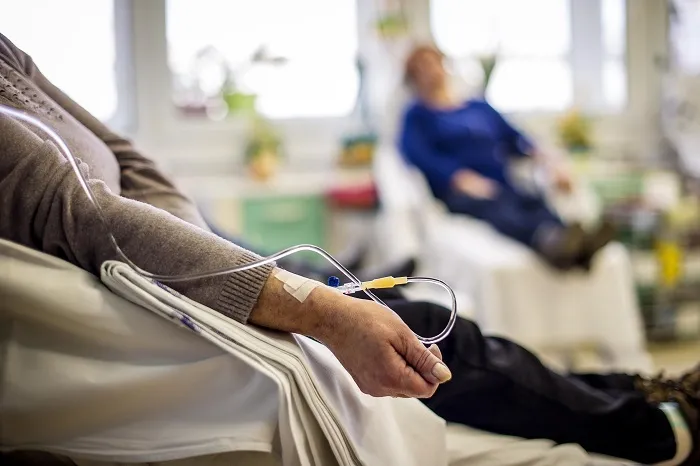
Under the theme “The Future of Digital Health – Predicting 2030”, the conference [email protected] The 2023 Forum from May 23-26 will discuss the main technology matrices that will reach health in the coming years, both public and private. The meeting is part of the programming of the 28th Hospitalar, The main event and platform for business generation and networking in the health sector in Latin America.
Forum sessions will be directed towards four main vectors: (1) data defragmentation, (2) expanding digital platforms in the health chain, (3) telemedicine practice – from telemedicine to remote patient monitoring, and (4) ramping up the use of AI in health.
“A large part of the ongoing digital transformations is gravitating within these hubs, not only in the national health system but in most G20 countries,” says Guilherme Hummel, scientific coordinator of the conference. “The speed of the transition requires study, investigation and preparation to assess its impact on the national and Latin American ecosystem,” he adds.
The conference is the result of a partnership between Hospitalar and HIMSS – the Healthcare Information and Management Systems Society, the largest health information technology community in the world. Created in 1961, this nonprofit organization is headquartered in the United States and has approximately 120,000 individual members, 430 service delivery organizations, 500 nonprofit partners, and 550 health service organizations worldwide.
hash
Debate on strategies and tools for defragmenting the national health system will open the congressional program [email protected] Forum 2023 on the 23rd. Two international case studies will be on the agenda. The first will show how the integrated care system of the NHS, Britain’s public health service, is being reduced to the fragmentation of health in the UK. The second deals with the digital strategy for primary care in Spain and coordinated continuing care.
Amidst these case studies, experts will discuss how the National Network for Health Data (RNDS), also called Open Health, can be a Brazilian strategy for defragmentation of the health system. The forum will discuss how digital health can revolutionize primary care in Brazil.
Platform
On the 24th, the conference will focus on the global trend of public and private health systems to become open platforms, modeled on the shop. Foreign experts predict major trends in this field and describe the potential of these digital structures to reduce the barrier between patients and the health system, and improve its efficiency.
During the programme, the forum will open space for health-related issues in the country. In various discussions, it will address how digital platforms can improve access to and efficiency of the Unified Health System (SUS), as well as the remaining steps for Brazil to adopt health platforms by 2030. It will also present the strategic role of these structures in data sharing and patient engagement, as well as pointing out ways to overcome On the Dilemmas of Lack of Interoperability.
remote control
Telemedicine and other activities in the health field, which can now be carried out remotely, will be touched upon on the 25th of this month. International specialists will reveal how remote monitoring – carried out by medical devices and artificial intelligence – is creating new forms of disease management chronic. During lunch, an international case study on the evolution of telehealth and residential care will be presented.
One of the sessions will focus on trends in the Internet of Medical Things (IoMT) with the advancement of 5G technology in the country. On this day, the program provides two discussions. The first will discuss why remote mental health has gained importance in the post-Covid era, while the second will discuss the Health 2030 continuum, explaining why comprehensive health systems will depend on connectivity in 2030.
algorithm
Conference [email protected] The Forum 2023 ends on the 26th, addressing the use of AI in health. ChatGPT’s impact on the health biome will open today’s agenda, which will continue with a live demonstration of application in health and other machine learning tools in the health chain. Two international case studies will show how the technology is used blockchain It is transforming service networks and how AI tools will be able to detect microvirus infections.
The program also includes three debates. The first will deal with intelligent automation in healthcare. The second will show what a graduate doctor will be like in 2030 and how to use it machine learning You will make a huge difference to him in clinical practice. The latter will discuss how to move from a disease-based system to a data-driven system for health and well-being by 2030.
Congress schedule [email protected] Forum 2023
May 22nd – From 2 p.m
Integrated Care Systems (ICSs): The NHS strategy to reduce system fragmentation
– Open Health Brazil: National Health Network Defragmentation Strategy (RNDS)
Digital strategy in primary care in Spain: coordinated continuing care – a case study in Spain
How can digital health revolutionize primary care in Brazil by 2030?
May 23rd – Morning from 9:30 am
– Megatrends in health platforms. Digital health platforms can support VBC (value-based costing) strategies
Digital platforms that facilitate the exchange of patient data. Overcoming the interoperability dilemma
Patient Engagement: One of the biggest challenges of this century. How will clinical data platforms help?
The Mayo Clinic Platform: A Window into the Future of Health Systems – A Case Study
– Digital platforms that facilitate the SUS to make “leaps” in accessing population health, effectively and accurately
Technologies reduce barriers between patients and services. How digital platforms improve system efficiency
What steps should Brazil take to adopt health data platforms by 2030?
May 24 – In the morning from 9:30 am and in the afternoon from 2 pm
– Remote monitoring that allows new forms of management in chronic diseases: devices, artificial intelligence and patient literacy
– “Sensing (IoMT) and 5G: the patient’s body connected to the world. What lies ahead in this century?”
Why is mental health telehealth becoming more important today? Digital Therapeutic Competence and Post-Covid Requirements
The development of telehealth and residential care. The hospital inside the patient’s home – a case study
Vital: A snapshot of the health chain in 2030. Why will public health systems (SUS) be intrinsically dependent on connectivity?
May 25th – Morning from 9:30 am and afternoon from 2 pm
– “ChatGPT: Impact on Health. Opportunities and Obstacles for New AI Machines in the Health Biome”
– Example health implementation of ChatGPT (live) and other Machine Learning tools in Health Chain
Intelligent automation in health: cases, outcomes, problems, user acceptance, and regulatory issues.
– “How Blockchain is Transforming Service Networks. Short, Medium (2030) and Long-term Impacts on Network Health Services” – Case Study
– “The rise of the data-driven doctor. The graduate of 2030 is a professional who doesn’t know how to use it.” machine learning It will be difficult to find a job
Anticipating epidemic crises. Metagenomic AI tools for the detection of microviral infections”–a case study
– “2030: Data-Driven Health Ecosystems. How do you move from a disease-driven system to a data-driven ecosystem?”
Service – Hospitalar 2023- “The Power of Platforms and Their Transformative Potential in Health”
date: May 23-26 from 11 a.m. to 8 p.m
local: Sao Paulo Gallery (1.5, Rod dos Imigrantes – Vila Agua Funda, Sao Paulo, Brazil)
Schedule: click hereAnd
Accreditation: click here. Advance: Free. On site: BRL 70.00.
Press adoption: Click here.

“Friendly zombie guru. Avid pop culture scholar. Freelance travel geek. Wannabe troublemaker. Coffee specialist.”






